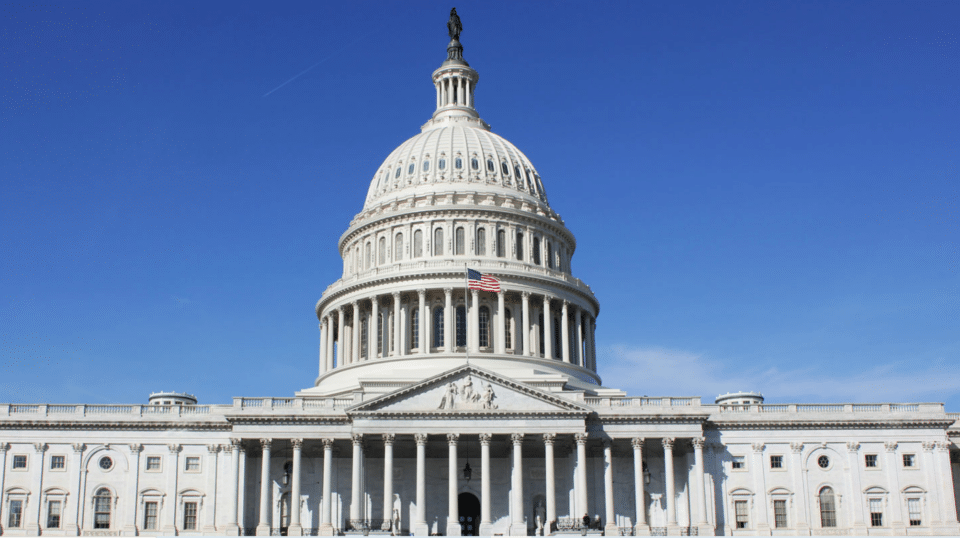NATIVE PLANTS MAKING STRIDES IN CONGRESSIONAL LEGISLATION
In late 2023, Senators and Representatives introduced the Building Native Habitats at Federal Facilities Act, which mandates that federal entities prioritize native plants where feasible (excluding lawns, so turf alternatives not expressly mandated), codifies the prioritization of native plants in existing facility design standards and requests that the Council on Environmental Quality produce public guidance every two years with best practices and analytic findings.
“Federal facilities are ideal proving grounds for scaling best practices in managing our landscapes, prioritizing healthy and resilient native plants” - Sen. Martin Heinrich (D-N.M.)
Many industry members remain skeptical of the impact of this bill after lackluster response to executive orders in the 90’s mandating the use of native plants on federal property, but this effort provides new hope to native plant enthusiasts.
Image from Rep. Mikie Sherrill’s X account of national environmental groups that have endorsed the bipartisan Building Native Habitats at Federal Facilities Act.
The main focus of the proposed Act is in recognition of the importance of native plants for pollinators and flood control, aiming to emphasize and prioritize the use of native plants in federal projects, particularly in construction and maintenance activities carried out at federal facilities. The bipartisan bill, introduced by Representatives Mikie Sherrill (NJ-11) and David Joyce (OH-14), and Senators Martin Heinrich (D-NM) and Mike Braun (R-IN)., outlines specific requirements and considerations for federal agencies regarding the incorporation of native plants in such projects.
The landscape outside USDA Headquarters has been redesigned with a focus on sustainable landscape practices. The removal of invasive plants and inclusion of a wide variety of native species has created a more beautiful and environmentally friendly space.
Key provisions of the bill include:
Definitions:
The bill defines terms such as "Federal agency," "Federal project," and "native plant" to provide clarity on the scope and application of the proposed regulations.
Federal Project Requirements:
Federal agencies undertaking federal projects are required to prioritize, to the extent feasible in terms of cost, schedule, and product supply, the use of native plants over non-native plants.
Consideration of the long-term benefits of using native plants, including habitat creation, support for native pollinators, food and shelter for insect and wildlife populations, reduced soil erosion, decreased landscape water usage, increased sediment control, and improved stormwater runoff management, is mandated.
Exemption for Turfgrass and Lawns:
While prioritizing native plants is encouraged, the bill recognizes that turfgrass and lawn plantings may not always be feasible to prioritize. Federal agencies are not obligated to prioritize and consider turfgrass and lawns, but they are encouraged to explore the planting of native species in appropriate areas.
Contractor Requirements:
The head of a Federal agency is required to include the prioritization and consideration requirements in the federal contracts to the maximum extent possible, and subcontractors are also obligated to adhere to these requirements.
Update to Agency-Specific Design Standards:
Federal agencies maintaining facility design standards or landscape and maintenance development requirements must update these standards in line with the prioritization and consideration of native plants.
CEQ Guidance:
The Council on Environmental Quality (CEQ) is tasked with distributing guidance to Federal agencies on the use of native plants in federal projects and implementing the requirements outlined in the bill.
Reporting:
The Chair of the Council on Environmental Quality is required to make public, on the CEQ website, a report every two years detailing the use of native plants in federal projects. This report includes case studies on best practices, an analysis of scientific or environmental findings related to selected projects, and a description of how the federal government promotes native habitats and plant usage.
In summary, the proposed act seeks to enhance environmental sustainability in federal projects by promoting the use of native plants, contributing to biodiversity, and fostering ecosystems that support local flora and fauna. We hope this is the start of a nationwide trend and believe this is a big step toward achieving our goals surrounding conservation and revitalization of wild spaces.
Want to learn more about what you can do in your landscape to support biodiversity? Reach out to us at Wacca Pilatka to schedule a consultation and get started on creating the habitat of your dreams right in your own backyard!






